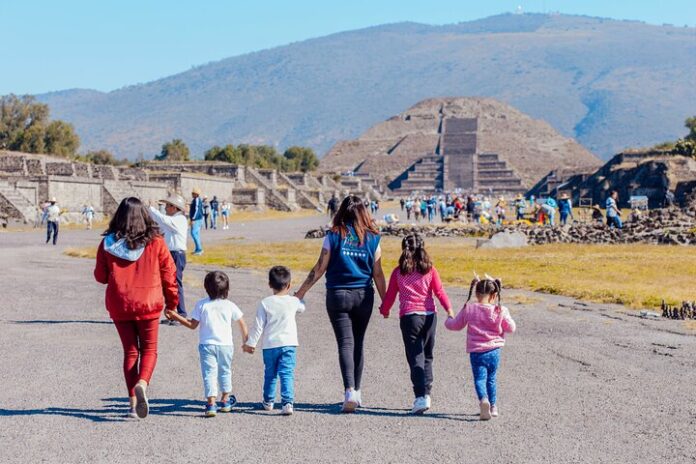Cultural exploration is more than just visiting new places; it’s about immersing oneself in the rich tapestry of traditions, languages, cuisines, and lifestyles that make each corner of the world unique. In today’s interconnected world, understanding and appreciating different cultures are essential skills for global citizens of all ages.
Benefits of Family Cultural Adventures
Embarking on cultural adventures as a family offers a multitude of benefits beyond the typical vacation experience. It strengthens familial bonds by creating shared memories and fostering mutual understanding. Additionally, it provides educational opportunities for children to learn about diversity, tolerance, and empathy firsthand.
Choosing the Right Destination
Selecting the perfect destination for a family cultural adventure requires careful consideration. Researching potential destinations is crucial, taking into account factors such as cultural attractions, safety, and accessibility. It’s essential to choose a destination that aligns with the interests and preferences of all family members while also considering practical concerns such as budget and travel logistics.
Preparing for the Journey
Proper preparation is key to a successful cultural exploration experience. Packing essentials such as comfortable clothing, sunscreen, and insect repellent ensures that the family is ready for any adventure. Learning basic phrases in the local language shows respect for the host culture and can facilitate communication with locals. Additionally, understanding cultural sensitivities and etiquette helps avoid unintentional faux pas.
Immersive Cultural Experiences
To truly immerse oneself in a culture, it’s essential to go beyond the tourist hotspots and seek out authentic experiences. Participating in local festivals and traditions provides insight into the community’s values and beliefs. Trying authentic cuisine introduces the family to new flavors and culinary traditions. Engaging with locals through homestays or community visits offers a unique perspective on daily life in the destination.
Exploring Historical Sites and Museums
Historical sites and museums offer opportunities for families to learn about the history and heritage of a destination in an interactive and engaging way. From ancient ruins to modern museums, there’s something to pique the interest of every family member. Guided tours and hands-on exhibits make learning fun for children and adults alike.
Adventure Activities with a Cultural Twist
For families who enjoy outdoor adventures, there are plenty of opportunities to incorporate cultural experiences into activities such as trekking, water sports, and wildlife encounters. Exploring cultural landscapes on foot provides insight into the relationship between nature and society. Water-based adventures, such as snorkeling or kayaking, offer a glimpse into maritime cultures. Wildlife encounters in natural habitats allow families to appreciate the importance of conservation efforts.
Capturing Memories Through Photography and Journaling
Documenting cultural experiences through photography and journaling ensures that memories will last a lifetime. Encourage family members to take photos of significant moments and landmarks, as well as to write down their thoughts and reflections. Creating a travel journal or scrapbook serves as a tangible reminder of the journey and can be shared with friends and family back home.
Learning Through Cultural Workshops and Classes
Participating in cultural workshops and classes provides hands-on learning experiences for the whole family. Whether it’s learning traditional crafts, cooking local recipes, or mastering basic language skills, these activities offer insight into the cultural heritage of the destination. Local experts often lead workshops, providing invaluable knowledge and expertise.
Respecting Local Customs and Traditions
Respecting local customs and traditions is essential when visiting a new culture. Understanding cultural norms regarding dress, behavior, and social interactions helps visitors avoid unintentional offense. It’s essential to be mindful of religious practices, dietary restrictions, and other cultural sensitivities. By showing respect for the host culture, families can foster positive interactions with locals and enrich their cultural experience.
Overcoming Language and Communication Barriers
Language barriers can be a challenge when exploring a new culture, but there are strategies for overcoming them. Utilizing translation apps and tools can help bridge the gap between languages. Additionally, non-verbal communication techniques such as gestures and facial expressions can convey meaning even when words fail. When in doubt, don’t hesitate to seek assistance from locals or tour guides who can help facilitate communication.
Safety Tips for Cultural Exploration
While cultural exploration can be incredibly rewarding, it’s essential to prioritize safety at all times. Researching travel advisories and health precautions for the destination ensures that families are informed about potential risks. Keeping valuables secure and staying aware of local laws and regulations can help prevent mishaps. By exercising caution and common sense, families can minimize the risk of encountering safety issues while traveling.
Environmental and Cultural Conservation
Responsible travel practices are essential for preserving both the natural environment and cultural heritage of a destination. Supporting local communities and economies through sustainable tourism initiatives helps ensure that cultural traditions are preserved for future generations.


